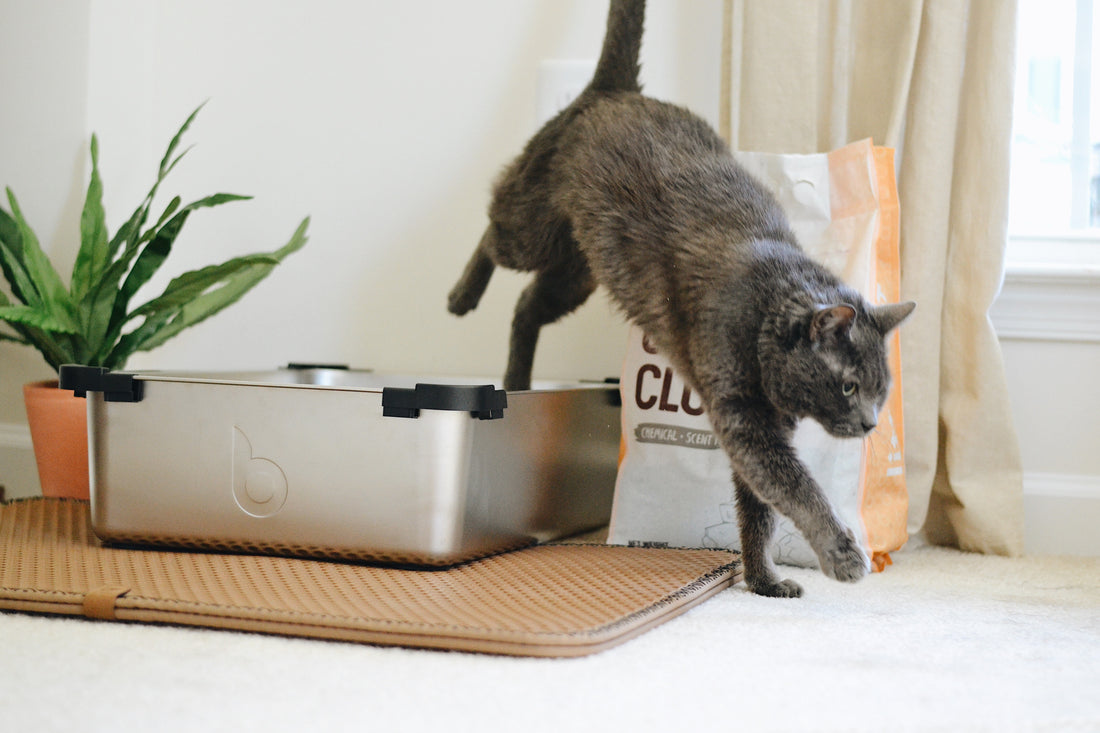Feline lower urinary tract disease, also known as FLUTD or FUTD, is a generalized name that encompasses numerous urinary conditions in cats.
The most common urinary problems in cats include; kidney disease, bladder and/or urinary tract infections, as well as urethra blockages due to crystals or stones.
Because kidney issues are common in cats, and can become serious and even life-threatening, it’s important to regularly assess your cat’s kidney health by consulting a veterinarian.
Causes of Feline Urinary Tract Disease
Causes of lower urinary tract issues in cats can be difficult to determine, as well as diagnose, but the most common causes include:
- Chronic kidney disease
- Kidney or bladder stones
- Bladder infection, or urinary tract infection
- Tumors or injury
- Idiopathic (unknown cause)
- Congenital abnormalities
- Stress and anxiety
Symptoms of Feline Urinary Tract Disease
- Urinating more than usual, and in smaller amounts
- Inability to urinate
- Urinating outside of their litter box
- Lack of bladder control
- Urine containing an ammonia smell
- Drinking more water than usual
- Blood in their urine
- Lack of energy and overall lethargy
- Vomiting

Preventing Urinary and Kidney Issues in Cats
Your cat’s urinary health is a key component of their overall wellbeing.
This is why it’s so important to understand how to prevent feline urinary tract issues before they develop.
-
Vet Visits- Step number one is bringing your cat to the vet regularly for check-ups. This should include testing your cat’s urine for any signs of infection or inflammation, as well as having routine bloodwork done to check their kidney levels.
-
Diet- If your cat is already experiencing urinary or kidney issues, your vet will most likely recommend a special diet low in protein, as well as one that controls the levels of magnesium, phosphorous, and calcium.
-
Hydration- This cannot be overemphasized; hydration is extremely important in controlling and even preventing kidney problems. This is because the higher the water intake, the more frequently your cat will urinate, flushing out the toxins that cause inflammation and lead to kidney and bladder stones.
Ways to Increase hydration include, providing fresh, clean drinking water in multiple areas, feeding canned food for its higher water content, adding water, low-sodium chicken broth, or other flavored waters to your cat’s dry food, as well as using a fountain with running/moving water to encourage your cat to drink more.
-
Reduce Stress and Anxiety- A surprising, but very real cause of kidney issues in cats, is stress and anxiety! But unlike other causes, this one is much easier to prevent.
Most importantly, make sure your cat feels safe in their home environment. If needed, provide them with their own space to retreat to, especially if you have a busy household. Take time to interact with your cat, and provide them with mental stimulation through toys and play.
If left untreated, kidney dysfunction can turn into chronic disease, kidney failure, and even death. But the good news is, with early detection, most issues can be successfully treated, and by taking certain precautions, you can even prevent kidney problems before they ever start.

The Benefits of Supplements
A great way to promote and support healthy urinary function in cats is through natural supplements.
This easy-to-use powder supplement contains acetyl glucosamine to encourage normal pH balance, as well as D-mannose and cranberry extract to promote and maintain urinary tract health. Also available in a chew, these supplements are vet-formulated, with a great taste your kitty will love.
Products related to this article:
Related Articles:
Every Sale Supports a Shelter Pet. Learn More.
Made in Vermont. Learn More.
If you suspect your pet is sick, call your vet immediately. For health-related questions, always consult your veterinarian, as they have examined your pet, know the pet's health history, and can make the best recommendations for your pet.




